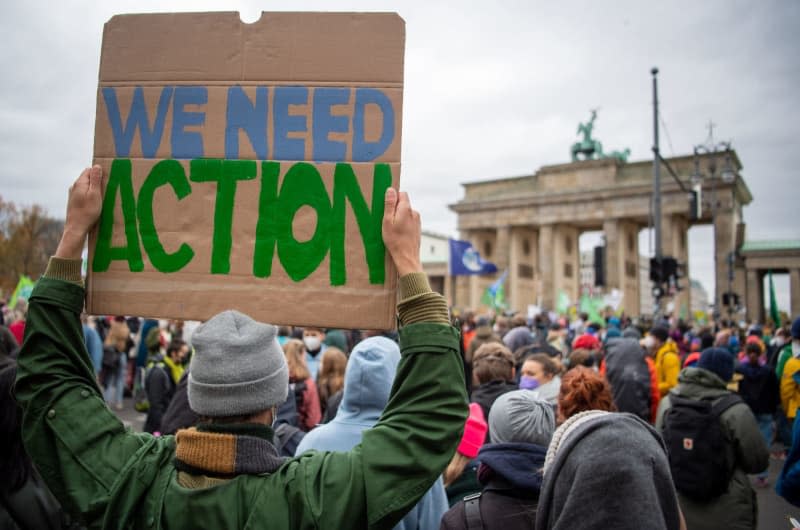The climate crisis is here. Why do so many continue to ignore it?

- Oops!Something went wrong.Please try again later.
We all have a list of unpleasant chores we've successfully been avoiding for a while. Those usually include filing your taxes or making a dentist appointment.
In recent years, the climate crisis has also become part of that list of things many prefer not to deal with.
Putting off your taxes arguably won't have a major effect on your life - unless you're Donald Trump, perhaps - which may be why we stubbornly continue to do so, but shouldn't the already visible consequences of global warming trigger something in us?
How is it possible to ignore society's biggest challenge to date?
Instead of trying to act, many people continue to ignore the fact that the climate crisis is here - a typical human behavioural response, according to German psychologist Lea Dohm.
Repression allows us to focus on our everyday lives, she says.
"Even people who are mentally healthy constantly repress something."
Some issues need to be blocked out in order to avoid being permanently stressed, according to Dohm, who works as a therapist at the German Alliance Climate Change and Health and co-founded the Psychologists for Future association.
Ignoring the climate crisis is still possible in some parts of the western world, she says.
"If I simply avoid certain news items or perhaps certain people who keep talking to me about it, then I can manage to block it out quite well in everyday life," says Dohm.
A poll conducted by the Planetary Health Action Survey (PACE) project among some 1,000 respondents in September found that almost a third rarely or never reads about the climate crisis.
Children are less versed in repression than adults, Dohm says, explaining why they tend to be more affected emotionally by the climate crisis.
But, she adds, they are also the ones who will have to live with its effects for much longer.
It's not like we don't care ...
Another poll published last year by Germany's Environment Ministry in cooperation with the country's Federal Environment Agency (UBA) shows that most people do care about the climate crisis.
In the representative survey, 57% of respondents rated the issue of environmental and climate protection as "very important," while 85% reported already experiencing very strong or strong effects of climate change including low water levels and drought.
For many, thinking about the climate crisis can be overwhelming and cause unpleasant feelings, says Dohm.
At the same time, most people simply are at a loss about what they can do personally to stop global warning, she adds, offering one explanation why so many continue to ignore the most important challenge of our time despite being very aware of its consequences.
"We know that knowledge about the climate crisis is better processed psychologically and that people are more likely to have the issue on their radar if they also feel like they can actively do something about it," Dohm says.
What CAN I do?
Actively fighting climate change doesn't mean you have to turn your life upside down, according to the psychologist.
It's possible to eat meat while also campaigning for climate protection, she says.
We're all implicated, says Dohm, so the best way to exert influence is to take collective action.
Consumer researcher Michael Bilharz, who has developed a carbon footprint calculator for Germany's environmental agency, believes that changing our individual behaviours does matter.
"If I really want to reduce my personal carbon footprint, I need to tackle the Big Points," he says, areas that are responsible for the highest amount of CO2 emissions including heating, mobility, nutrition and electricity generation.
His calculator also takes a person's monthly income into account, as it has been shown that those making more money also tend to be responsible for more emissions due to a higher level of consumption, he says.
Some people like to cite cost as a reason why they are not doing more for the climate. "With the cost of living constantly on the rise, who is able to pay for organic produce?" the popular argument goes.
According to Bilharz, reducing your carbon footprint doesn't necessarily mean you have to spend more money, however.
"A modest level of consumption protects the environment to a very high degree," the researcher says. So opting for a smaller flat, a smaller car or travelling by train are all measures that benefit the climate while also saving you money, he explains.
For Bilharz, it's not about maximizing every strategy but weighing up what works for you personally.
That doesn't mean that switching to a bamboo toothbrush is enough, however. "All that does is making us feel good about ourselves," the researcher says. "If we want to safeguard our living standard, we have to get the climate crisis under control and achieve a climate-neutral economy and way of life."


